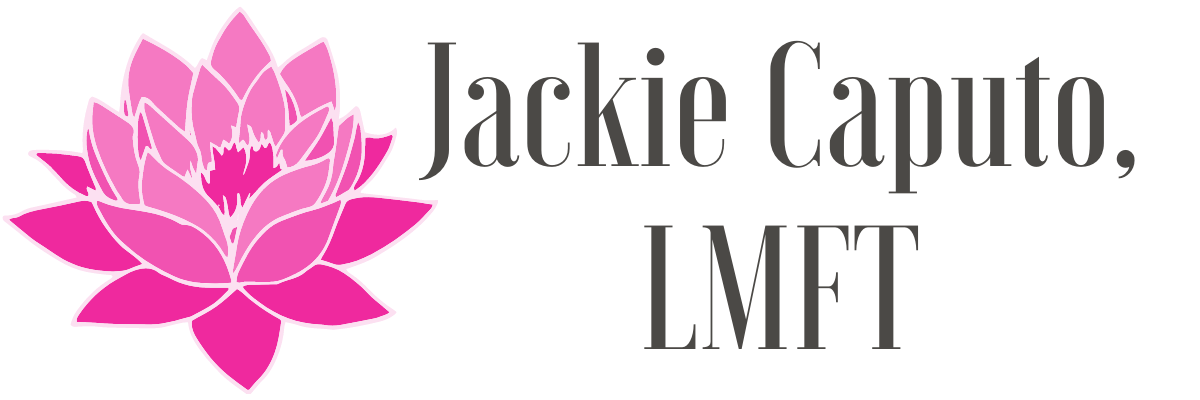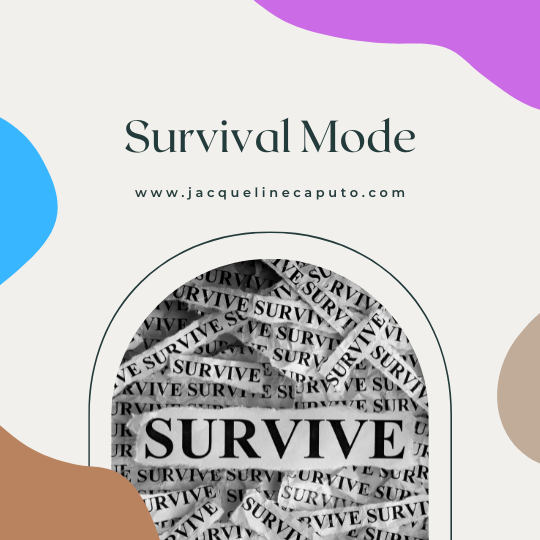Let’s Talk About Survival Mode
You may be in survival mode and don’t even realize it. Sometimes, we get so used to living in toxic cycles that we can’t distinguish between what is “normal” and what is “just surviving.” We often can’t see how much we have been affected by something that has happened to us. Sometimes we need another person to give us a reality check and show us what needs to change in our lives. This article does just that – if you are interested in learning more about survival mode and coping methods, keep reading!
How People Enter Survival Mode
I found Life Coach Michele Lee Nieves’s Youtube video about survival mode, “Understanding Trauma: Stuck In Survival Mode | Will I Ever Be Normal?” to be very informative. In the video, Michele touches on what a normal brain is like when not in survival mode. A brain in a relaxed state is open to new information, curious, and receptive, while a brain in survival mode usually takes on the opposite traits.
People can enter survival mode when they face traumatizing events. Some people have struggled in their early childhood and grew up in a home with toxic parents or relatives. According to “Family Systems Theory,” each family member is affected by one another – in a family, your actions will impact your life and the lives of the people around you.
Abusive parents made sure you didn’t feel safe in your own home. If you struggled with abusive parents, you may have been harmed physically, mentally, sexually, or all of the above. You may have had a parent who was a product of abuse themselves and experienced trauma without ever learning how to heal from it. Alternatively, you may not have been abused but still grew up in a dysfunctional home life. Some families struggle with having distance or coldness between them, experiencing money struggles, or having to relocate/move often – all of these experiences can make for an unstable environment.
In her video, Michele Lee Nieves also mentioned that people might have entered survival mode after being in an abusive or toxic relationship. Many people in unhealthy relationships can face physical, sexual, or emotional abuse, as mentioned before. Some people have narcissistic partners – according to the DSM, narcissists have an inflated sense of self, need constant attention and affection, lack empathy, and can be quite full of themselves.
An abusive person may try to manipulate their partner to separate or distance themselves from loved ones who want what’s best for them. This person will try to gain control of the person in any way they can.
No matter what experience caused it, survival mode forms to combat danger. In times of distress, our bodies will adapt to try and preserve or save us. If we are in a continuously toxic or harmful cycle, we may start living our lives stuck in survival mode.
Signs You Are In Survival Mode
You may be in survival mode if you relate to these symptoms.
You:
-
Feel like you just can’t catch a break
-
Are irritated often and assume the worst will happen
-
Have a short fuse and feel affected deeply by your surroundings
-
Experience high anxiety or stress
-
Constantly worry about what others think or need their approval
-
Find it hard to retain information or take in new ideas
-
Face lack of sleep and feelings of restlessness
-
May be exhausted but feel wired due to the hyperawareness you face
-
Feel like daily tasks are too much to deal with and everything/everyone is overwhelming
-
Think that no one can help you and you feel stuck in toxic cycles
Tips to Break Free From Survival Mode
Ask for Help
If you relate to this article and feel like you are in survival mode, don’t be afraid to ask for help. Your upbringing may have made you feel like you were never seen, heard, or appreciated. These ideas are not true! There are people in this world who want to help and support you.
Many people do not click with the family members they grew up with, and that is okay. You can find a chosen family – anyone can be your family, it doesn’t matter if they are related by blood or not. A family is supposed to love, support, and be there for you. Your chosen family can be comprised of anyone who makes you feel this way. Stick with people who make you happy and bring out the best in you.
Work on Healing Your Inner Child or Trauma
As children, we had no control over how we grew up. We were born into families and situations and had to survive in any way we could. As you get older, you can enter your healing process. A way to start breaking free from survival mode is to start healing your inner child. Healing your inner child is a journey that can help you get closure from your past pain and trauma.
You deserve to live a happier and more peaceful life. Make room for your own safe place in life! While on this journey, practice self-compassion and self-care. Be patient with yourself and your healing journey. You are worth the time and energy.
Get Your Body Moving
When people are in survival mode, they experience high anxiety, as mentioned before. Danielle Render Turmaud, M.S., NCC suggests exercising as a helpful coping mechanism.
Exercise helps people de-stress and take their minds off what gives them anxiety. Exercise is great because you can try so many different forms – dance, swimming, running, etc. Pick one that best resonates with you!
Lighten Your Load and Start Saying “NO”
You need to prioritize your mental well-being. If something is not serving you in life or bringing you stress, consider releasing it from your life. If someone from your past triggers you and constantly gets you down, you don’t have to stay in contact with that person.
Sometimes, purging hurtful things from your life isn’t that easy. Your job may bring you a lot of stress, but you can’t just quit. You have bills to pay and a family to support. We can best deal with these scenarios by implementing healthy coping mechanisms and a better work-life balance.
Also, people who have been in toxic situations can find it hard to say “no.” Try saying “no” without people-pleasing your way out of it. Know that your boundaries and comfort levels matter.
Overall…
If you are in survival mode, know that hope is out there!
You don’t have to keep living your life on high alert. Talking to a therapist can help you cope with trauma and heal. A therapist provides a safe space for you to explore your emotions, deal with your past, and find ways to move on.
Wishing you the best on your journey to health and happiness!

About the Author
Jackie Caputo is a Licensed Marriage and Family Therapist who provides therapy in Woodland Hills, CA. She also provides online therapy in California to individuals throughout the state.

